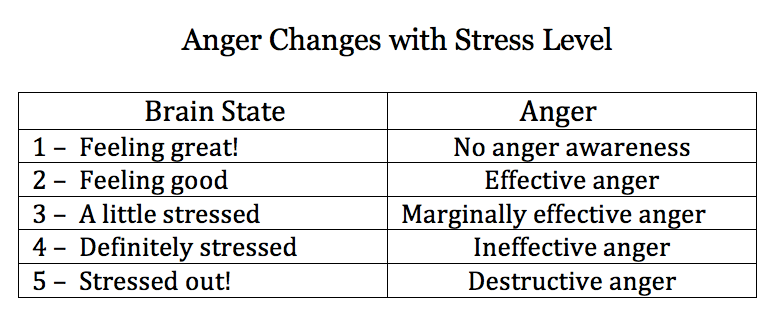The vitriolic presidential campaign left many of us feeling anger, and the election of Donald J. Trump as President hasn’t erased it. Many of us feel a deep, fire in the belly anger that it has come to this. We may feel like caged lions, spitting mad, but told to quiet down, be civil and act nice.
That seems like excellent advice, given the harm caused by rage, hostility, aggression, but, in reality, the stress we feel from the campaign is not likely to fade and that ongoing political climate could become a continuing assault to our well-being.
Hearing about or seeing vicious personal attacks, criticism of parents who have lost a child to war, accusations of fraud and talk of sexual assault have affected our psyches, souls and bodies.
Stress is the number one worldwide epidemic and threat to health. It is outstripping our capacity to process that stress effectively, so increasingly the brain’s stress switch (hypothalamus) is flipping. That takes our thinking brain with its wise judgment and oversight off line and puts the reptilian brain, which is given to fight or flight extremes, in charge. Emotionally, our first response is anger, if we don’t completely dissociate and turn off feelings altogether.
And yet, maybe this election stress is perfect in its own way, as given the likely pile up of charges and counter charges and avalanches of stresses post-election, we will pause for long enough to upgrade our brain’s capacity to process stress, in the spirit of changing the world by changing ourselves.
My colleagues and I at University of California San Francisco have developed emotional brain training (EBT) as a set of skills to improve the brain’s effectiveness in processing stress. Our hunter-gatherer brain adapted to the Paleolithic life of physical stress and sameness, yet we live in a world of emotional stress and overwhelming speed of change. As more than 80 percent of health problems are rooted in chronic stress, we have explored four ways to update our brain’s capacity to process our anger and boost our resilience.
The upside of anger
The first concept in updating how we respond to stress is to stop judging our anger. It is the only negative emotion in the brain associated with approach and power, the one emotion that says, “Cut it out!” It’s our protest emotion that mobilizes us to do something that helps us survive.
Without a robust skill to express anger, we turn that anger in on ourselves, and open the door to depression, anxiety, shame, numbness and false highs. The internalized, suppressed anger causes a rumbling of chronic stress that rears its head as stress symptoms. Those backaches, late night munchies, work stalls, and sleepless nights all add to our health care burden and cause emotional diseases to overtake chronic diseases in mortality rates.
In short, we need to honor our right to feel and express anger effectively, which takes understanding the neurobiology of anger.
Knowing your number
Breakthrough research at New York University Emotional Brain Institute has proposed a new way to think about emotions based circuitry activated at varying levels of stress. When our stress levels are low, we activate emotional circuits that help us take wise actions that protect ourselves and others. When the fight or flight response is spewing stress chemicals through every cell of our being, we activate circuits that takes us to unhealthy extremes.

These new learnings suggest a needed update in how we approach emotions.
EBT uses a five point system of stress in which we do not ask ourselves “How do I feel? but instead we ask ourselves, “What number am I?” that is, we check our stress level or brain state. That gives the thinking brain more power to determine how best to process our emotions, rather than our diving right into our feelings and potentially finding ourselves in a rage or in other destructive emotions, such as depression, panic, anxiety or numbness.
If you like, try using that tool now by taking three deep breaths and asking yourself, “What number am I?”, then using the technique for that stress level that turns destructive emotions into constructive feelings. The emotional technique for Brain State 5 is the damage control tool, that is, taking three deep breaths, then saying repeatedly (sometimes 5 to 20 times) “do not judge, minimize harm, know it will pass.” That calms down the reptilian brain so your thinking brain can be on line and running the show again.
The power of compassion and humor
Once we’re thinking in terms of brain states, it’s natural to start wondering about the brain states of others. Problems in relationships at home or at work are most apt to happen when both people are in the lower brain states.
The reptilian brain is in charge, so not only are emotions extreme, but the brain activates circuits of relationship dysfunction. Our thinking brain remains offline, so analyzing the situation rapidly devolves into catastrophizing, obsessing or ruminating.

The solution is to appreciate that the root cause of all this intense emotion is stress. During stress nobody is “relationship material,” and so compassion and humor (e.g., “I’d like to discuss that but my reptilian brain is in charge right now.”) can go a long way toward melting that stress and hastening a healing moment of reconnection.
Updating your emotional tools
The third idea is to appreciate that there are new tools that can turn negative destructive emotions into positive, constructive feelings. Part of EBT includes learning tools to update our emotional skill set, that you can use internally – so nobody else knows how furious you are or how shut down you feel – that rapidly reduce stress.
Try the flow tool, which is effective at Brain State 3, and easy to learn. Just say the first four words of each sentence, pause so your brain connects and words “bubble up” into your conscious mind to complete the sentence. Express 1 to 10 anger statements, using words that come from your gut – release that anger, and when you do, sadness will arise. Complete one sentence for sadness and each of the other feelings.
The EBT Flow Tool
I feel angry that … I can’t stand it that … I feel furious that . . I hate it that … (up to 10)
I feel sad that … I feel afraid that … I feel guilty that …
I feel grateful that … I feel happy that …I feel secure that … I feel proud that …

Here’s my flow tool in this moment: I feel angry there this election is such a mess. I can’t stand it that I don’t like either candidate. I hate it that the stress of this has taken its toll on me. I feel guilty that I can’t stop thinking about it … I feel grateful that we have elections. I feel happy that it is a sunny day. I feel secure that I can handle whatever comes and I feel proud that I used this tool. Ahhh . . now I have a smile on my face and a calm in my body. Perfect!

Rewiring unreasonable expectations
The fourth concept is to address why we are so angry. Of course there are logical reasons for being upset, but what is happening in the brain? It’s the clash between our unconscious expectations that were encoded in the past and the realities of our daily lives. When our expectations are out of date and discordant with current realities, stress chemicals surge as if hungry lions were chasing us, even though the threat is posed by dueling circuits within our own emotional brain. The greater the discord, the greater the chemical response, hence explaining why the deeply offensive, divisive election process has been so stressful.
On the bright side, emerging research has shown that these circuits can be aroused, reactivated and updated, so we can revise our out-dated unconscious emotional expectations that is the root cause of the amplification of our normal daily stress. This brain reset has traditionally been the work of psychotherapists in group or individual sessions, but health care is becoming neuroscience-based, so new accessible options are emerging. The EBT approach is to learn a self-directed technique (“cycle tool”) we can use when stressed, that both rapidly reduces our stress and updates our circuitry. Attention to accessible techniques like this one will probably grow as our concern about health care expenditure increases.
Trying a little tenderness
How can we boost our spirits after this election? Let’s remind ourselves that the stress of the situation is perfect in its own way. It gives us opportunities to try a little tenderness, becoming more sophisticated in how we approach our emotions, thereby discovering a new zest for life. That zest becomes our gift to ourselves – and to our nation.
Stress is a very dangerous problem that we humans face every day, so try to be happy, live a healthy life to reduce stress. You can also use our products to reduce daily stress, making your life more beautiful.
Link product: https://infinitycubefidget.com/shop/new-yellow-infinity-cube-fidget-toys-for-stress-relief/
